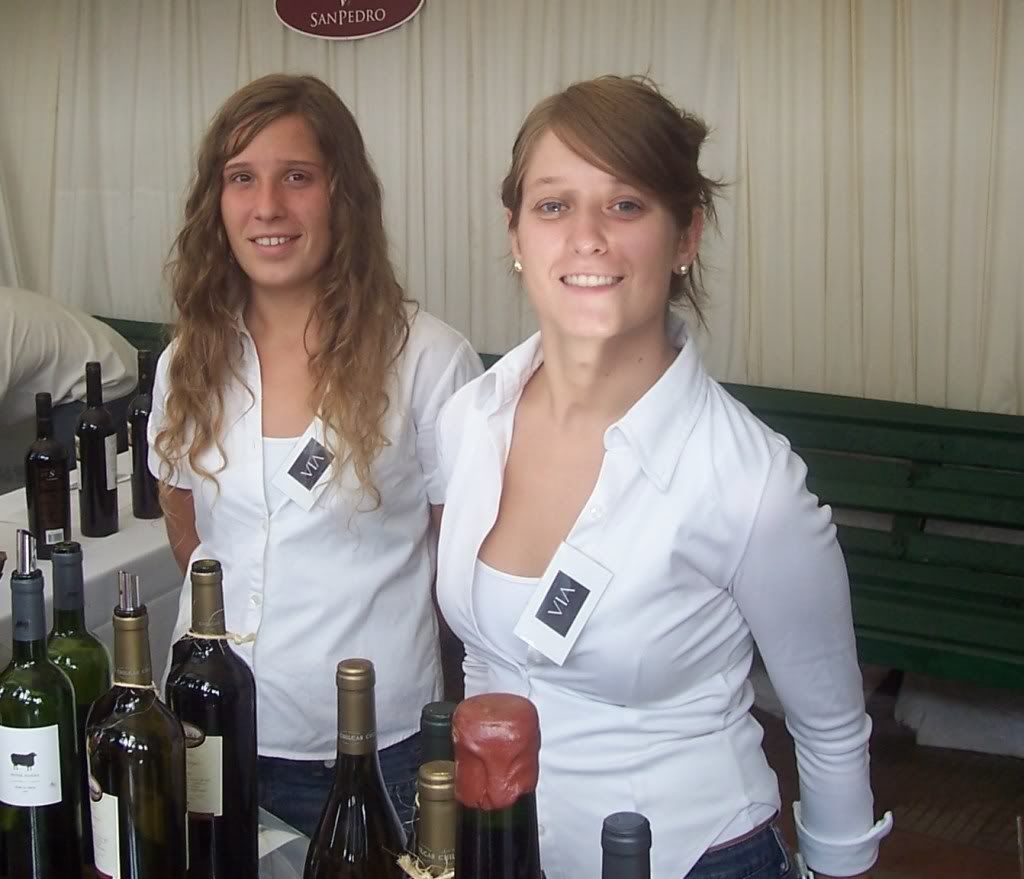The former owner of Sunnyside Farms is no doubt more famous—haven had his agricultural exploits written up in The Washington Post and The New York Times. But devoted gardeners and those who have an interest in organic food will perhaps be more interested to talk with Nivardo Loya who is in charge of vegetable production at Sunnyside Farms in
Nivardo came to Sunnyside Farms eight years ago from
To get to Sunnyside from the town of
A lot of people in
But all of this talk of business does not interest Nivardo. His interest is strictly agriculture. Standing in one of the dozen or so greenhouses where is it almost too hot to breath Nivardo explains how he farms tomatoes when by definition an “organic” farm is not allowed to use chemical pesticides. Nivardo explains that there are two problems with tomatoes---a virus and a fungus that turn the leaves brown. So to avoid that he plants tomatoes in two different green houses in two different soils. If one patch dies the other should survive. And then he does not replant tomatoes (nor eggplants nor peppers since they are of the same family) in the same soil for 4 years. And to make sure that the fruit gets ripe he pops suckers off the plants, which are shoots which grown yet another shoot.
He also grows eggplants. (Nivardo does not know the Spanish word for “Eggplant” and neither do I so we just call it “Eggplant”.) These are planted in buckets whose bottom has been knocked out. The idea is to raise the plant up a little in the raised beds and give the roots some loose soil into which they can grow. As anyone who has planted eggplants knows their delicate leaves are attacked by leaf hoppers. To stop that Nivardo sprays agricultural soap. And to give them a trellis upon which to grow he runs a string to the top of the greenhouse.
While there are 12 people working at Sunnyside farms Nivardo tends the greenhouse for the most part by himself pulling weeds by hand. The other employees and interns work in the orchard or travel to the farmers markets. Of course when it is raining they help here in the only place where it is not raining.
Nivardo shows off his Super Star onions. These are enormous and they are sweet too like Vidalia. He says last year they sold them for $1.50 but people were willing to pay even more. So this year they raised the price to $3.00 apiece and they are selling fast. The onions are planted so close together that they seemingly have crowded out any possible weeds. They are started indoors from seeds which are planted 3 inches apart. After 7 weeks they are moved to the greenhouse. Asked when he knows to move the onion to the greenhouse he says, “When they are ready I plant them.” meaning he does not need to consult any book.
Each of the greenhouses here is filled with different produce and there are melons and asparagus planted in the fields. Nivardo says he won’t grow any more lettuce this year because in the heat of summer it gets too bitter. Its the same story for cilantro which he says he won’t plant anymore period because it bolts too rapidly and goes to seed.
There is lots of kale planted here although Nivardo admits it tastes better when the whether is cool. Beets are planted at various stages of maturity. There are cut flowers, cucumbers, French radishes and much more that is sold to 30 families who have signed up for the subscription program and to customers at the DuPont Circles Farmers market.
The vegetables grown indoors at Sunnyside are grown in raised beds. Nivardo does not pay too much attention to soil tests but instead prefers to look at the vitality of the plant as a gauge of whether it is growing well or not. He puts down lime to control the PH and adds fish fertilizer and lots of compost but other than that he does not pay much attention to trace elements like boron.
One of the more unique aspects of the greenhouses here is they grow produce year round. Rather than spending thousands of dollars to heat the space inside the greenhouse---heat that would for the most part escape from these walls insulated with only plastic---Sunnyside instead prefers to heat the soil. Outside the greenhouses is a wood and propane fired boiler that pumps hot water into hoses planted throughout the greenhouse soil. Nivardo explains that when the temperature of the air drops below 50 degrees the heating system comes on. The soil temperature is kept warm and Nivardo covers the plants with an agricultural cloth. He says it is brutal work keeping the fire going all the time. He rises at 3 AM every day and during the night to stoke the furnace.








No comments:
Post a Comment